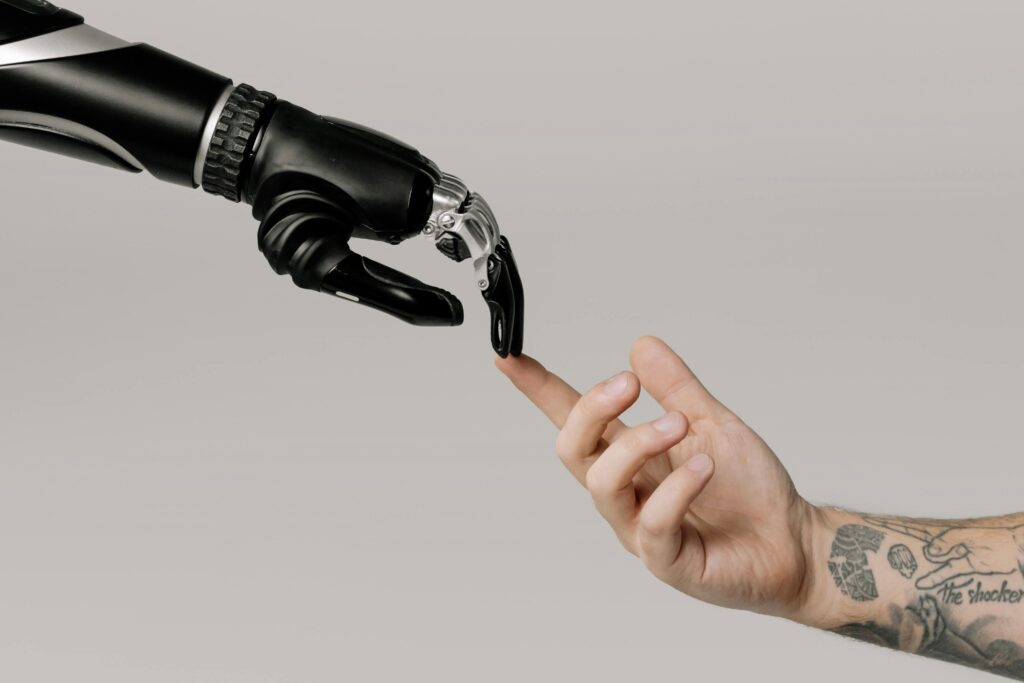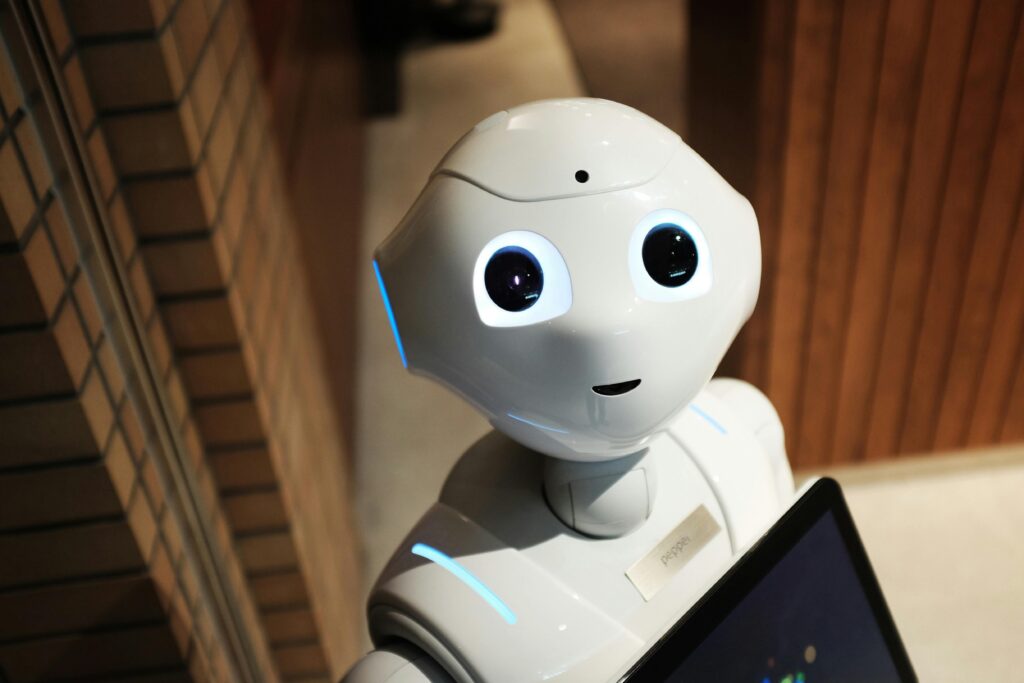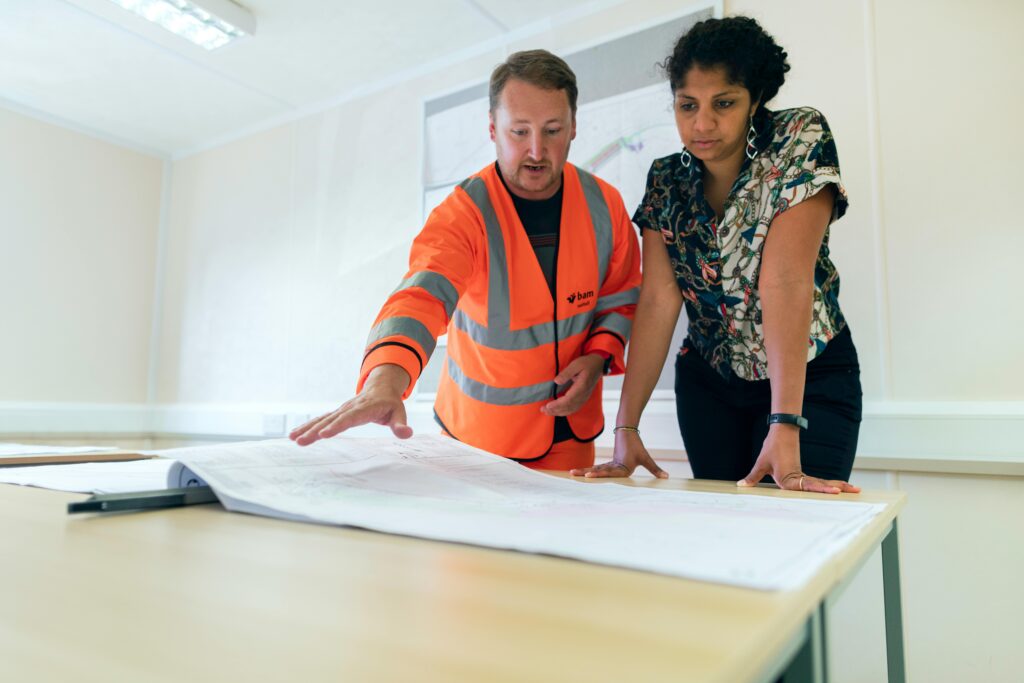24 September 2024
Tech never stands still. And engineering’s a sector that leads the way when it comes to technological innovation and transformation. This industry’s undergoing a huge changes, driven by automation, the groundbreaking capabilities of artificial intelligence (AI), and a growing commitment to sustainability. For both clients and candidates in the engineering field, staying up to date on these emerging trends isn’t just beneficial – it’s essential.
In this blog we’ll delve into the latest developments that are reshaping the engineering industry. We’ll also explore how some of these innovations are creating new job opportunities and redefining the skill sets required.
Read on to discover the exciting possibilities that lie ahead and how you can position yourself to thrive in the ever-advancing world of engineering.
Main Trends in Engineering
1. Automation is Revolutionising Processes
Automation takes centre stage when it comes to the engineering sector. It’s responsible for streamlining workflows by reducing manual intervention and enhancing precision and efficiency. With advancements in robotics and machine learning, engineering tasks that once required lots of human labour are now executed with superior accuracy and speed – all thanks to automation.
This shift’s not only boosting productivity but also allowing engineers to focus on more complex, creative, and strategic activities. As manufacturing lines, construction sites, and design processes become increasingly automated, the industry’s witnessing massive changes in operational dynamics.

2. AI is Driving Innovation
Artificial intelligence (AI) is at the heart of a new wave of innovation in engineering, offering unimaginable capabilities in problem-solving and design. AI’s powerful algorithms are being used to optimise engineering tasks – from predictive maintenance that can foresee equipment failures to quality assurance systems that ensure the highest standards in project delivery.
AI contributes to a more intelligent and responsive engineering process, enabling faster, data-driven decision-making. Additionally, AI’s potential to create new engineering solutions is vast, opening up avenues for designing smarter products and systems that can adapt to changing environments. As AI continues to evolve, its integration into the engineering sector is set to redefine the boundaries of what is possible. It’s super exciting!

3. We’re Embracing Sustainable Practices
The shift towards sustainable practices is transforming engineering into a more eco-conscious industry. Employers and the engineers that work for them are increasingly focusing on developing solutions that minimise environmental impact while maximising resource efficiency. This involves moving to renewable energy sources such as solar and wind, adopting green technologies, and designing infrastructure with sustainability at its core.
Sustainable engineering practices not only contribute to environmental preservation but also offer economic benefits by reducing waste and energy consumption. The commitment to sustainability is becoming a defining trend in engineering, driving the creation of projects that are not only innovative but also responsible and future-proof. As the demand for eco-friendly solutions grows, the engineering industry is set to play a crucial role in shaping a sustainable future.

Impact on Job Opportunities
As the engineering landscape evolves with a rise in automation, AI, and sustainable practices, we’re witnessing a surge in new roles and responsibilities. Automation’s transforming traditional job functions, and means engineers need to adapt to roles that revolve around managing automated systems and optimising workflows. This shift creates a demand for professionals skilled in robotics and process automation, who can design and maintain sophisticated systems that enhance productivity and precision.
The rise of AI’s further expanding the number of job opportunities within engineering. Specialists adept in AI technologies are increasingly sought after to develop intelligent systems that can analyse data, predict trends, and improve decision-making processes.
AI’s integration into engineering also calls for roles focused on ethical AI implementation, ensuring that these systems are used responsibly and effectively.
But addition to technological advancements, the growing emphasis on sustainability means there are new niches within the engineering field. As industries strive to minimise their environmental footprint, the demand for experts in renewable energy, resource management, and sustainable design continues to rise. Engineers with a focus on sustainability are at the forefront of creating eco-friendly solutions that align with global environmental goals.
Skills for the Future
As the engineering industry shifts towards a more technologically driven future, we’ve noticed the skill set required for success is evolving. Engineers now need a unique blend of technical expertise and soft skills to thrive in this dynamic environment.
Adaptability is crucial for engineers. Tech won’t stand still, so neither can you! With automation and AI altering the landscape of engineering tasks, professionals need to be flexible and open-minded, ready to embrace new tools and methodologies. Ifyou’re adaptable you’ll be able to seamlessly transition between roles and responsibilities as the industry continues to innovate.
Continuous learning is another critical skill for today’s engineers. The pace of technological advancement means that the knowledge acquired today may become obsolete tomorrow. So, it’s key to commit to lifelong learning, staying updated with the latest trends and technologies. For employers looking to secure top engineering talent, you may want to look to offer upskilling opportunities to keep your workforce up to date. And this, of course, is a great way to attract talent to your organisation too.
Interdisciplinary knowledge is becoming increasingly important as engineering projects grow in complexity and scope. The integration of AI, automation, and sustainable practices requires engineers to have a broad understanding of various fields – from data science and robotics to environmental science and energy management. This holistic perspective enables engineers to devise comprehensive solutions that address problems from a range of angles, enhancing the effectiveness and sustainability of their work.

Prepping for the Future of Engineering
It’s clear that embracing emerging trends isn’t really an option for engineers or those who employ them – it’s a necessity! Automation is revolutionising processes, AI is driving unparalleled innovation, and sustainable practices are reshaping how we approach engineering solutions. These trends are not only creating new job roles and responsibilities but also redefining the skills needed to thrive in this tech-driven environment.
The key is to stay informed and adaptable. And by doing so, engineers and businesses alike can position themselves at the forefront of this transformation, creating new opportunities for growth and success.
If you want to know more about how to stay at the forefront of the exciting and ever-advancing engineering industry, get in touch with our experts at ODIN Recruitment. We’re guiding both businesses and engineering professionals on how to grow and thrive. And we’re here to help you too!